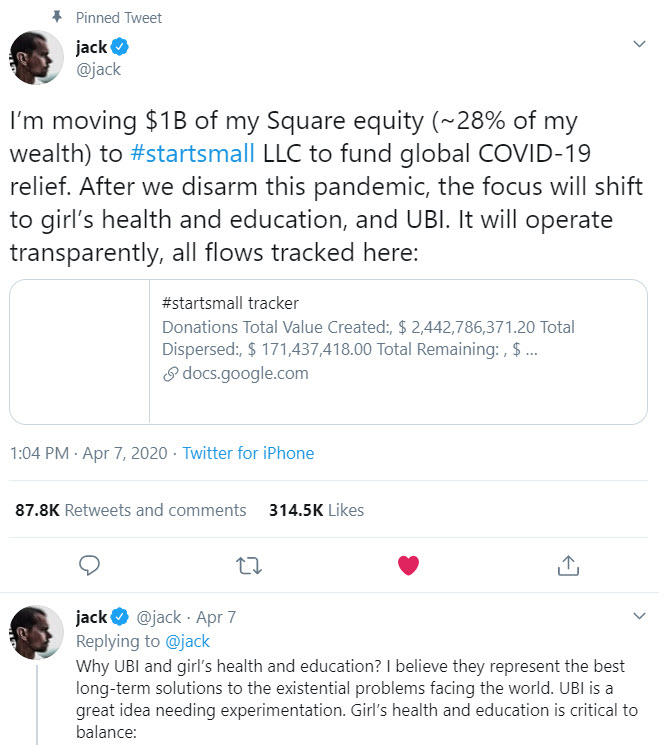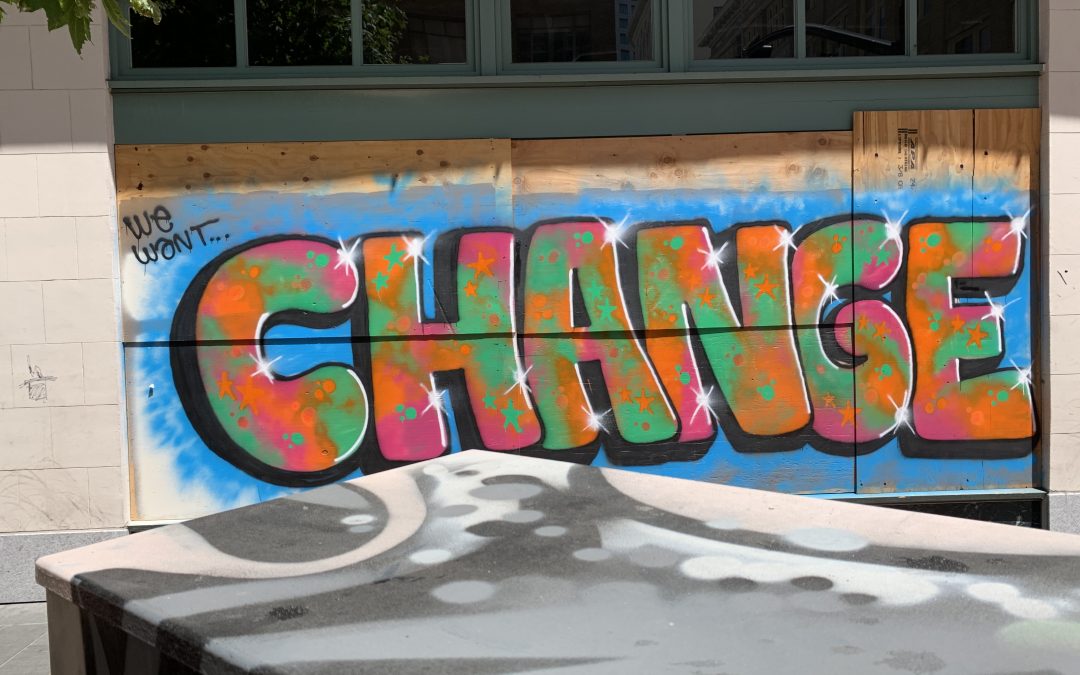In his commencement speech to the class of 2020*, Obama poignantly said, “It’s [the global pandemic] woken a lot of young people up to the fact that the old ways of doing things just don’t work. That it doesn’t matter how much money you make if everyone around you is hungry and sick. And that our society and our democracy only work when we think not just about ourselves, but about each other.”
I wish President Obama had been speaking to the business community when he had said those words. Culture change affects everything–be it work, societal, or personal.
He was characterizing the economic and societal realities graduates face in 2020, but his ideas are also important for companies who hold positions of power and influence. Remember, before 2020’s health pandemic, we had burgeoning environmental and racial justice crises (both going far further back than the breaking points experienced in 2020).
As someone who creates organizational change via online communities, I hear a lot about the situations and cultures that those “old ways” have created in the workplaces. The older the company, the deeper the history and culture to navigate goes. Command and control leadership styles, executives insulated neatly away from the employee experience, inauthentic or a lack of communication, un-willingness to share the “why” of culture change decisions, poor ability and unwillingness to embody corporate values in action are some of the friction points I hear about.
I see many similarities between Obama’s characterization of the problems in today’s society and the challenges people experience at work. Business is forever navigating the human condition and we seem eternally stuck in the numbers and obsessed with ROI while also being hopelessly unable to integrate in how people feel and what they actually need to be truly supported.
“…the old ways of doing things just don’t work…”
When Coronavirus hit, a family member of mine worked for a company that was well off. Their leaders immediately instituted a 3x increase in charitable match dollars for Covid-19 related giving (up to $10K). This was on top of the normal company charitable match 1:1 offered to employees. About a month later, as the racial justice pandemic took center stage with murders of George Floyd, Ahmed Arbery, Breonna Taylor, and others, that same company announced the recipients of Black Lives Matter non-profit organizations it was funding, and executives also encouraged employees to join them in giving to the cause.
In the past, immediate and swift response by big companies to national crises (environmental catastrophes excepted) like Covid-19 or injustice (murder) would never have happened. In some cases, corporate America seemed to understand that solidarity was deeper this time. Digital acts of solidarity (virtue signaling) have increased this year. But whether it’s a brand changing its external profile to show solidarity, or having your CEO take a knee, change is far deeper than that. The change needs to penetrate organizationally- into organizational processes, culture, and people, especially leaders.
What’s new and exciting about Jack Dorsey’s Tweet is that it offers up a level of transparency you don’t commonly see by CEOs. It’s a start and as an inspiration (impetus?) to his peer CEOs, it’s fantastic behavior modeling (as we would say if this were in the context of a change management project):

Sharing the wealth and caring for those outside a company’s walls is important. There are amazing and moving acts (like Twitter’s Jack Dorsey taking personal action) taking place on the part of a some who have tremendous wealth. There are many examples of corporate America demonstrating its willingness to spend money to address the problems. But with my change management and employee perspective hat on, I have to say the caveat is in the framing. Companies think of societal problems as “that problem that needs fixing, over there.” Rarely is the depth of understanding such that companies also direct their efforts to create internal change as well.
In response to the racial justice tipping point George Floyd and the deaths of many others catalyzed earlier this year, Nike announced they will give $10m a year for the next 4 years to support the Black community. This is in addition to a portfolio that has given $417m over the past 5 years. However, what is it that is happening on the inside at Nike exactly? When companies are asked to change in ways that impact their own operational norms, the “walking of the talk” falls short. Only now is the awareness that the problem of systemic injustice lurks inside a company’s walls coming to light. This is a very common problem in the microcosms I work in.
“….If everyone around you is hungry and sick.”
According to research by LinkedIn, volunteerism is up dramatically in 2020. For about 6 weeks during the lockdown here in northern California as Covid-19 infections were growing, I volunteered to with a volunteer matching initiative called Oakland at Risk. The service was designed to connect the elderly, those with chronic illness, or who are immunocompromised with neighbors willing to help them obtain groceries, get medications, etc.
I matched volunteers with people in need based on their zip code and location. The approximate ratio I saw was that for every inquiry requesting assistance, there were an average of 4 or 5 volunteers who had signed up to help. In my own way, I prayed as I did those matches. I hoped I was fostering neighbors gaining empathy and connection with their immediate neighbors. The closest match I made was between two people who lived just over 150’ apart. Neighbors who did not know each other’s circumstances, I guessed. I hoped I was introducing a permanent change into their lives.
“And that our society and our democracy only work when we think not just about ourselves, but about each other.”
Where government has failed to fully help its citizens, the nonprofit sector and citizens have begun stepping in with actions–which are creating a culture change. Here in Oakland, there is a growing volunteer movement called Town Fridge. A growing network of refrigerators around the city where anyone can sign up to help keep those sites stocked up on food free for anyone to come and take.
We are in an era where the solutions we need will take time and will run deep. Adaptation, resilience, and behavior change is at the root of today’s many pandemics we must all navigate. We can give money and empower the experts, but at the core, we are each being asked to engage with the experts, learn from them and then to do the inner work to change our own behavior (perhaps temporarily, perhaps permanently—it depends on which pandemic you choose).
It’s critical for companies to understand that all these stories are about people. The same people who (used to) walk through the doors of offices and places of business. They will again in the future. What affects your employees societally impacts and changes them. Companies can no longer close the headquarter doors and hope external societal factors will get left behind. Better yet, with the right types of organizational change, employees will no longer let their voices be ignored. They will demand accountability, transparency, and change.
Because music is so close to my heart, here is one that speaks to the power of the people. It speaks to your power. You. The one reading right here and now. Do the work. Thank you.
